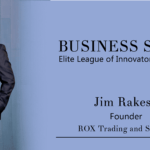Regarded as the most important currency in the business world, trust is often seen as business and brand asset. The reputation of any business is shaped by the trust factor. Not only do customers play a crucial role but also employees, stakeholders of the organization. Together, they create an image of the business which is projected as a whole. The economy system only works because people trust companies and businesses. It becomes imperative to have certain ethics in work culture to propel your company to new heights and garner trust of customers, clients, employees and stakeholders.
Trust Itself
A greater focus on trust is the forerunner. The crisis of 2007 has left people skeptical about the investments they make. The misuse and exploitation have left a thorn. In the years that followed the crisis, the trust factor of the organizations was close looked at before investments. Relatively, trust became an important currency for companies.
Focusing on the trust factor, firms can have stringent laws to make sure they retain their customers’ loyalty, even if the market is turbulent. A leader enabling and employing such laws would project their company’s image as trustworthy.
Transparency
Top management decides the working of the organization. Those leaders establish the climate and culture. A leader with integrity, courage, and compassion would be careful in making the decisions that would impact the company in the long run. Strong policies might prove hard at the initial stage of the organization but in the long run, only those policies will ensure survival. As the leader’s decision and actions set the examples for the employees to follow, it should always enhance the well-being of the firm, its people, and society.
Listening to People
Human beings are wired to speak more than listen. More often than not, this proves to be fatal for the leader. Without listening to the employees and the customers, the organization is bound to fail. The suggestions and solutions people offer are in favor of the firm. Incorporating them would eventually result in the trust of employees and the customers as they feel they are being heard and their opinions are being valued.
A give and take relationship, where you tell your story and products you offer and the customers would tell how the organization made an impact in their lives. With clarity and consistency, a leader can portray the willingness of the company to be trustworthy.
Patience
A leader aiming to be believable, consistent, and genuine in his approach, styles the firms to nurture the trust in products and services. If there is a mistake, it is always better to own it rather than throwing the blame around. A leader committed to ethics would eventually garner the trust but it is not possible overnight. Patience with a good attitude will bring you what you seek.
Fair Practices
A leader is just in all dealings; they do not exercise power arbitrarily and do not use overreaching nor indecent means to gain or maintain any advantage nor take advantage of another’s mistakes or difficulties. Fair persons manifest a commitment to justice, the equal treatment of individuals, tolerance for and acceptance of diversity, they are open-minded; they are willing to admit they are wrong and, where appropriate, change their positions and beliefs.

















